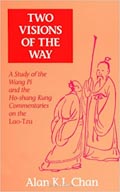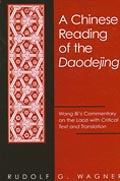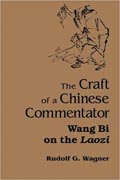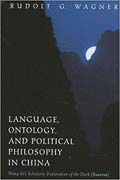start > Klassieke teksten > Personen/auteurs > auteur
Wang Bi 王弼 [Wang Pi]
Wang Bi 王弼 [Wang Pi] (226-249 n.Chr.)
De 'Taoist Canon - A Historical Companion to the Daozang' geeft de volgende biografie:
Wang Bi, whose ancestral home was in Gaoping (Shanyang, Shandong), was born in Luoyang in the immediate aftermath of the fall of the Later Han dynasty (25-220). A member of a powerful clan with a distinguished intellectual and literary tradition, Wang Bi moved in influential and fashionable circles associating, for example, with the Wei dynasty (220-265) minister of personnel (libu shangshu) and famed debater He Yan (ca. 190-24-9). One of the most prominent exponents of the Mystery school (Xuanxue) of philosophy, Wang Bi expressed his highly original ideas in the form of commentaries on the classics. At the end of his short life, he left influential commentaries on the Laozi and the Yijing. His exploration of the ontological concepts of wu (nonbeing) and you (being), in particular, opened new perspectives for cross-fertilization with the Buddhist theory of emptiness (kong) on the one hand, and the evolving Confucian phenomenology of substance (ti) and function (yong), on the other. Giving free rein to his critical and analytical powers, Wang Bi exemplified the ideal of youthful, untrammeled genius that briefly enjoyed a heyday in his time (Schipper 2004 p1278).
Ronnie Littlejohn geeft de volgende typering:
Wang Bi (Wang Pi), styled Fusi, is regarded as one of the most important interpreters of the classical Chinese texts known as the Daodejing (Tao Te Ching) and the Yijing (I Ching). He lived and worked during the period after the collapse of the Han dynasty in 220 C.E., an era in which elite interest began to shift away from Confucianism toward Daoism. As a self-identified Confucian, Wang Bi wanted to create an understanding of Daoism that was consistent with Confucianism but which did not fall into what he considered to be the errors of then-popular Daoist sectarian groups. He understood his main task to be the restoration of order and a sense of direction to Chinese society after the turbulent final years of the Han, and offered the ideal of establishing the “true way” (zhendao) as the solution. Although he died at the age of twenty-four, his interpretations of Daoism became influential for several reasons. The edition of the Daodejing that he used in his commentary on that work has been the basis for almost every translation into a Western language for nearly two centuries. Moreover, his interpretations of Daoist material did not undermine Confucianism, making them palatable to later Confucian thinkers. Finally, Wang Bi’s work provided a way of talking about indigenous Chinese beliefs that made them seem compatible with the introduction of Indian Buddhist texts and ideas in the decades to follow. (Ronnie Littlejohn IEP Online)
Klassieke teksten
- schrijver van de Daode zhenjing zhu (Commentary to the Laozi)- schrijver van de Laozi weizhi lilüe (Schets van de subtiele betekenis en structuur van de Laozi)
Literatuur
Boeken 1 tot 8 van de 8
Chan, Alan K.L. (1991). Two Visions of the Way: A Study of the Wang Pi and the Ho-shang Kung Commentaries on the Lao Tzu. SUNY Press. *
ISBN10: 0791404552

D'Ambrosio, Paul J. (2022). Wang Bi’s 'Confucian' Laozi: Commensurable Ethical Understandings in 'Daoist' and 'Confucian' Thinking. Religions, Vol. *.
Ook online.
Meer informatie...

Lynn, Richard John (2000). Reading Daoist Texts as Political Theory: Wang Bi on Laozi and Guo Xiang on Zhuangzi: International Congress of Asian and North African Studies. *.
Wagner, Rudolf G. (2003). A Chinese Reading of the Daodejing: Wang Bi's Commentary on the Laozi with Critical Text and Translation. SUNY Press. *
Paperback editie ISBN 978-0-7914-5182-3
ISBN13: 978-0791451816
Meer informatie...
--- (2000). The Craft of a Chinese Commentator: Wang Bi on the Laozi. SUNY Press. *ISBN13: 978-0791443965
Meer informatie...
--- (2000). Language, Ontology, and Political Philosophy in China: Wang Bi's Scholarly Exploration of the Dark (Xuanxue). SUNY Press. *ISBN10: 0791443957
Meer informatie...


Ziporyn, Brook (2010). Li in Wang Bi and Guo Xiang: Coherence in the dark. Philosophy and Religion in Early Medieval China, Vol. Hst 4 *.
Boeken 1 tot 8 van de 8




